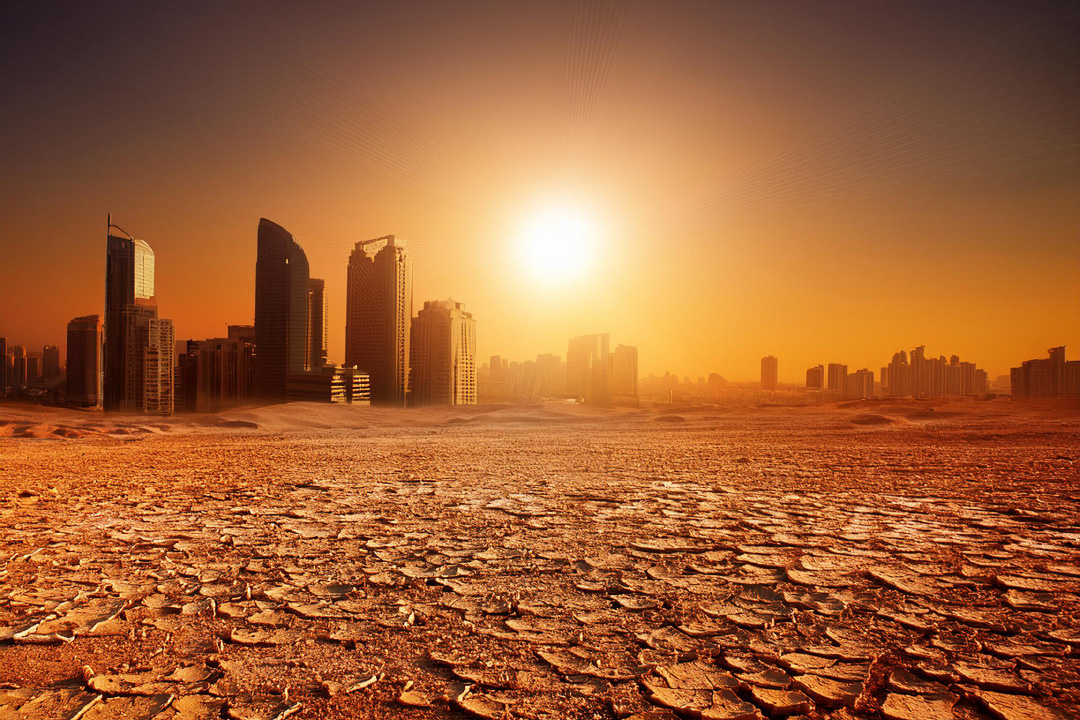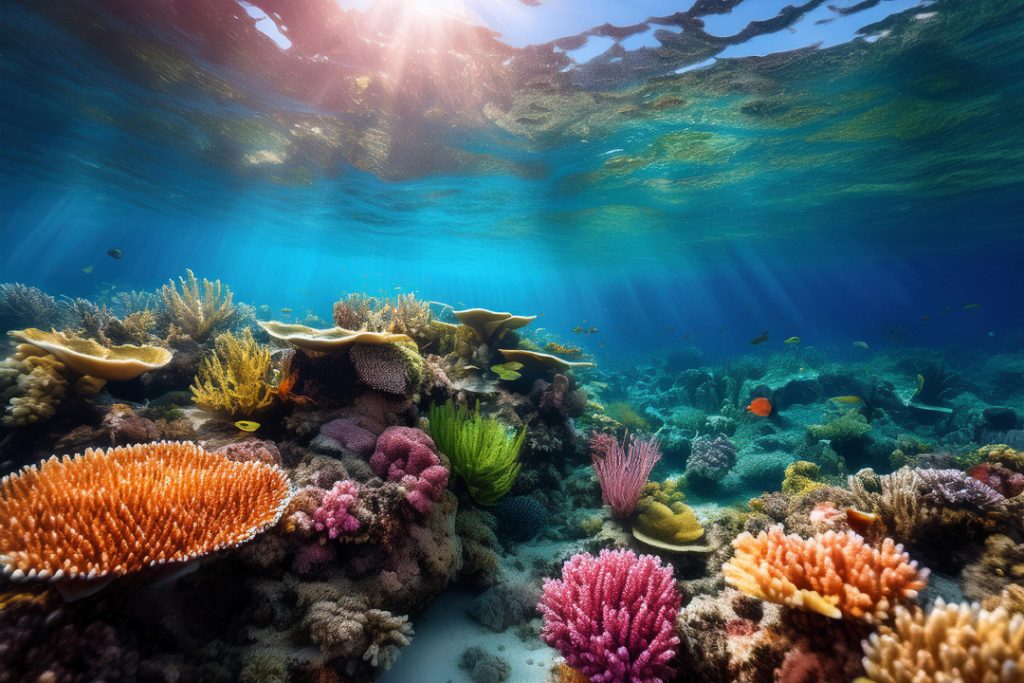An Inside Look at Global Warming
When folks chat about hot topics, global warming’s usually at the top. It’s not just some science lesson—it’s what’s changing our world and lives. Let’s break it down, see what’s heating things up, and figure out how we’re all part of it.
What’s Global Warming Anyway?
Think of global warming as a big, unwanted heat wave. It’s the Earth’s temperature rising bit by bit, mostly thanks to us and some natural stuff. The culprits are greenhouse gases like carbon dioxide and methane. When these gases blanket the Earth, they trap the sun’s heat, causing a slow bake.
Why is the Earth Getting Toasty?
The Earth’s warming isn’t a random act. It’s a mix of Mother Nature and human hubbub. Sure, things like volcanic eruptions or changes in the sun’s energy can nudge up the temperature, but we’ve really sped things up with:
- Burning Fossil Fuels: Think cars, power plants, and factories guzzling up coal, oil, and gas.
- Chopping Down Forests: Trees soak up carbon dioxide, so fewer trees mean more CO2 hanging around.
- Industrial Work: Factories doing their thing crank out loads of emissions.
- Farming: Certain farming tricks release methane and nitrous oxide, making things even warmer.
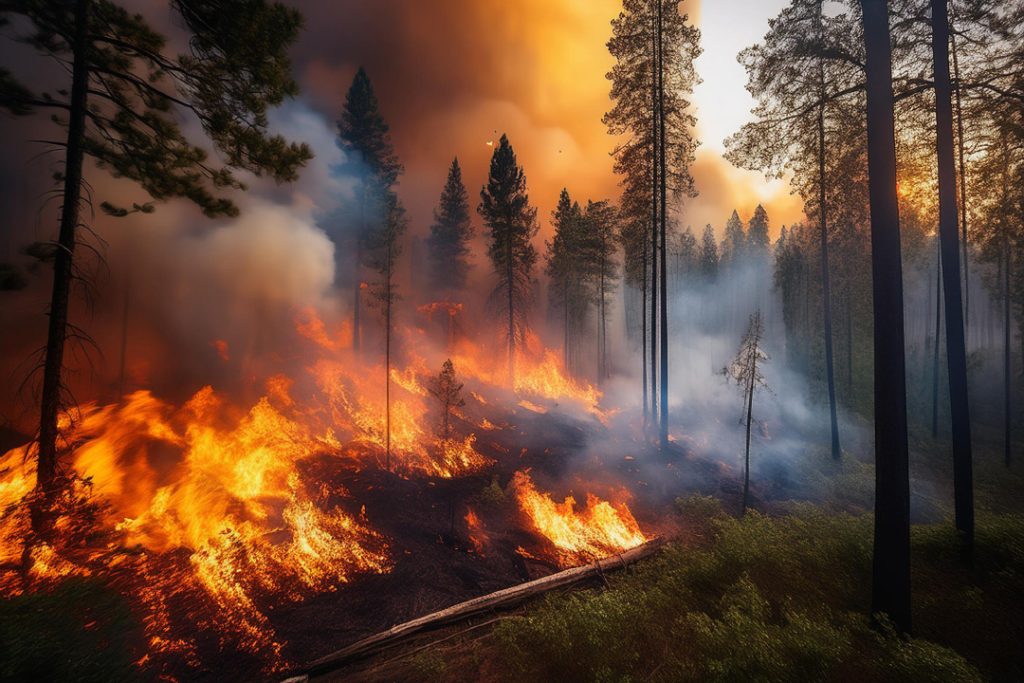
If you want the full scoop on what’s causing climate change, check out our deep dive on climate change causes.
How Human Activities Crank Up the Heat
We’re playing a big role in this warming game. Here’s what our everyday actions look like in terms of greenhouse gases:
- Burning Fossil Fuels: Every time we fire up the engine or flip on a light, out pours carbon emissions.
- Cutting Down Forests: Taking down trees means fewer natural absorbers of CO2, letting more of it stay in the air.
- Farm Life: From cattle burps to fertilizer use, certain farming habits pump out potent gases like methane and nitrous oxide. For some greener ways to farm, see our guide on sustainable agriculture practices.
| Human Activity | Greenhouse Gas Emission (in Million Metric Tons) |
|---|---|
| Fossil Fuel Combustion | 35,000 |
| Deforestation | 1,200 |
| Agriculture | 5,800 |
| Industrial Processes | 4,200 |
These emissions stack up and make global warming a pressing issue, hitting nature and our health hard.
Curious about how this impacts our oceans or how renewable energy can help? We’ve got the lowdown on ocean acidification effects and how renewable energy sources can turn the tide.
How Global Warming Wrecks the Environment
Global warming is kinda like that annoying drizzle that turns into a full-blown storm, causing issues you can’t ignore. Let’s chat about the rising heat, shrinking ice, and wild weather changes.
The Earth’s Fever
Think of the Earth running a fever. It’s been getting hotter, year by year, thanks to all those greenhouse gases we’re pumping into the air.
| Year | Temp Hike (°C) |
|---|---|
| 1980 | +0.27 |
| 1990 | +0.47 |
| 2000 | +0.6 |
| 2010 | +0.85 |
| 2020 | +1.02 |
Look at that jump! As the table shows, our planet’s temperature has been steadily climbing. Want the lowdown on why? Check out our piece on why the climate’s changing.
Ice Melts and Oceans Swell
Warming temps aren’t content just making us sweat. They’re also melting the ice caps, leading to rising sea levels—kind of like a bad sequel with even worse consequences.
| Years | Sea Level Jump (mm) |
|---|---|
| 1880-1939 | +70 |
| 1940-1999 | +135 |
| 2000-2020 | +98 |
Melting ice caps not only mess with polar bears and seals but also flood our coasts. Imagine your favorite beachside spot submerged under water. Forget making a sandcastle there!
Crazy Weather on the Rise
Global warming is stirring up the weather pot, making storms rougher and droughts longer. Here’s what’s brewing:
- Mega Hurricanes: Hotter seas fuel wild and woolly hurricanes.
- Dry Spells: Longer droughts hit water supplies and farming hard.
- Scorchers: Heatwaves that make you wish for winter.
These whacky weather shifts don’t just ruin your weekend plans; they mess with farming and food production. For ways to keep crops going strong, peep our guide on sustainability in farming.
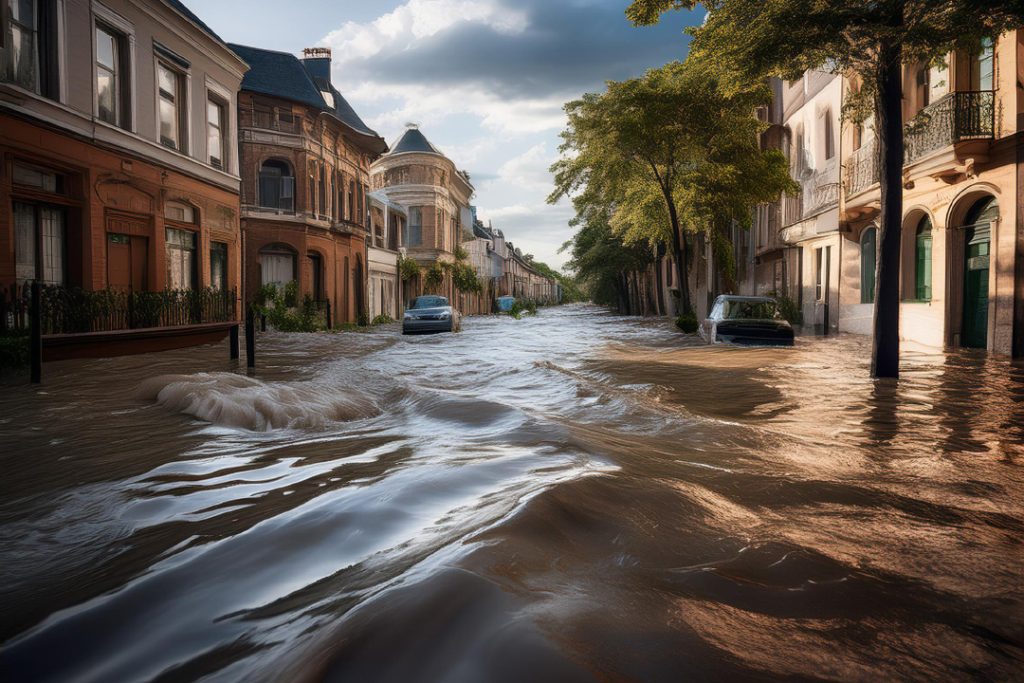
What You Can Do
Knowing the damage is half the battle. Ready to fight back? Go green with renewable energy sources—solar, wind, you name it. Or maybe help curb ocean acid’s nasty effects. Doing your bit can help save our planet from flipping out completely.
So, let’s roll up our sleeves and do what we can for a future with fewer floods, less sweat, and happier polar bears.
Shaking Up Ecosystems
Animal Homes in Turmoil
Global warming’s really messing with animals’ lives. One obvious example? Traditional spots for many species are turning hostile. Like polar bears are struggling because their icy world’s melting fast.
Temperature shifts and changing rain setups are messing with plants and water. So animals are being forced to find new digs. But moving ain’t easy – they face new competitors for the same resources, which stresses everyone out.
| Creature Trouble | What’s Changing? |
|---|---|
| Polar Bears | Ice disappearing, hunting tough |
| Birds | Migration routes mixed up |
| Frogs and Toads | More diseases spreading |
Who Ordered Extinction?
Biodiversity? It’s vanishing quickly ’cause many creatures can’t cope with the new climate on time. Take coral reefs, the “sea jungles” — they’re dying due to hotter waters and more acidic seas. When reefs vanish, so does the massive marine community they support.
Adding to the mess, deforestation and habitat wreckage for farms and cities crushes wildlife spaces. More space for us means less for everything else.
| Biodiversity Vanishing | What’s Doing It? |
|---|---|
| Coral Reefs | Hotter oceans, bleached corals |
| Forests | Trees chopped, rains changing |
| Wetlands | Draining, seas rising |
Sea Change: Ocean Acidification
A star player in the climate chaos? Ocean acidification, though not many talk about it. Extra CO2 in the air gets soaked up by the oceans, making them more acidic. This spells trouble for sea life with calcium carbonate shells – think clams, corals, and crabs.
Higher acidity makes it hard for these critters to build and keep their shells. They get more fragile and die faster. And fish? They struggle to sense predators, adding to the chaos.
Get more details in our deep dive on ocean acidification.
| Ocean Mayhem | Who’s Hurting? |
|---|---|
| More Acidity | Corals, clams, crabs |
| Fragile Shells | Oysters |
| Lost Predator Senses | Many fish |
When you look at how global warming’s shaking things up, it’s clear animals and plants are under attack. We need to step up with smart plans and renewable energy to keep Earth’s incredible life forms thriving.
How Global Warming Messes with Our Health
Turns out, global warming’s not just an environmental issue—it messes with our health too. As the planet heats up, we’ve got a growing roster of health challenges. Let’s break down what you need to know about the heat, diseases, and issues with clean water and food.
Too Hot to Handle
Extreme heat can be more than just uncomfortable—it can be downright dangerous. Elderly folks, kids, and people with health conditions are especially at risk. If you’re outside too long when it’s scorching, you might deal with heat exhaustion or even heatstroke—both of which can turn deadly if ignored.
| Health Problem | Symptoms | What Can Happen |
|---|---|---|
| Heat Exhaustion | Heavy sweating, feeling weak, nausea | Might lead to heatstroke |
| Heatstroke | Very high body temp, confusion, passing out | Serious organ damage or death |
Bugs and Germs on the Rise
As it gets warmer, it’s a bug’s paradise—mosquitoes and ticks are spreading out, bringing more diseases with them. With higher temps and wet weather, you see more cases of things like malaria, dengue fever, and Lyme disease.
| Disease | Carrier | Climate Effect |
|---|---|---|
| Malaria | Mosquitoes | More heat and humidity makes them thrive |
| Dengue Fever | Mosquitoes | Warmer climates give them more places to live |
| Lyme Disease | Ticks | Longer seasons for the little pests to be active |
Clean Water and Food Woes
Hotter days and wacky weather mean trouble for our water and food. Droughts and weird rain patterns make water scarce and sometimes dirty. Farms take a hit too, causing food shortages and jacking up prices.
| What’s Affected | Impact | Result |
|---|---|---|
| Water | Shortage, contamination | More health issues |
| Food | Lower crop production, higher costs | Malnutrition, hunger |
Want more scoop on how global warming’s messing with farming? Check out our piece on sustainable farming tips. Curious why all this is happening? See our rundown on what’s driving climate change.
Getting a grip on these problems is key. Switching to renewable energy and making our communities tougher can help tackle the health impacts of heating up the planet.
How Climate Change Affects Us All: Watch Your Back, Wallet, and Dinner Plate
Global warming isn’t just about melting ice caps and sweaty summers. It has consequences that touch every corner of our lives, reshaping communities and economies. Let’s unpack how this all plays out.
Communities on the Move
As sea levels rise, coastal areas bear the brunt. Imagine waking up one day to find your home slowly sinking. Rising seas and stronger storms mean more flooding, pushing people from their homes. Low-lying spots and islands take a big hit. And relocating isn’t a picnic—finding new homes, jobs, and resources is a scramble.
Here’s a snapshot of what we might face:
| Region | Projected Sea Level Rise by 2100 (cm) |
|---|---|
| Southeast Asia | 50 – 100 |
| Pacific Islands | 50 – 150 |
| Eastern U.S. | 30 – 90 |
Wallet Woes: Economic Busts
More floods, hurricanes, and wildfires spell trouble for our wallets. Natural disasters are becoming meaner and costlier. Rebuilding after a storm isn’t cheap, putting a strain on local economies and national budgets. Check out how the numbers have climbed:
| Year | Economic Losses Due to Natural Disasters (USD Billion) |
|---|---|
| 2000 | 95 |
| 2010 | 160 |
| 2020 | 268 |
Food Fights: Agriculture in Trouble
Global warming messes with our food too. Unpredictable weather and rising temperatures mess up crop yields, disrupt growing seasons, and invite more pests and diseases. That means higher food prices and insecurity. Here’s how it hits our main crops:
| Crop | Impact of Temperature Increase on Yield (%) |
|---|---|
| Wheat | -6 to -11 |
| Corn | -3 to -8 |
| Rice | -4 to -10 |
Moving towards sustainable agriculture practices and chowing down on renewable energy sources can help put a dent in these issues.
The stakes are high, but we can turn things around. By embracing renewables, adopting new ag practices, and beefing up community resilience, we can gear up for a better, more stable future. Let’s get to work!
Mitigation and Adaptation Strategies
Let’s tackle global warming head-on with smart moves to cut greenhouse gases and put up with the heat. We’re gonna dive into some solid ways to shrink our carbon footprint, switch to green energy, and build tough communities that can take a punch.
Cutting Greenhouse Gas Emissions
Knocking down greenhouse gases is our frontline defense against global warming. Check out who’s spewing the most:
| Who’s Pollutin’ | Gas Emissions (%) |
|---|---|
| Transportation | 29 |
| Electricity | 25 |
| Industry | 23 |
| Agriculture | 10 |
| Home & Work | 13 |
How do we cut the fumes?
- Make homes and buildings super energy efficient.
- Go big on biking, walking, and public transit.
- Capture and store that carbon like pros.
- Farm smart with eco-friendly techniques. Dig deeper into sustainable farming.
Jumping on the Renewable Energy Bandwagon
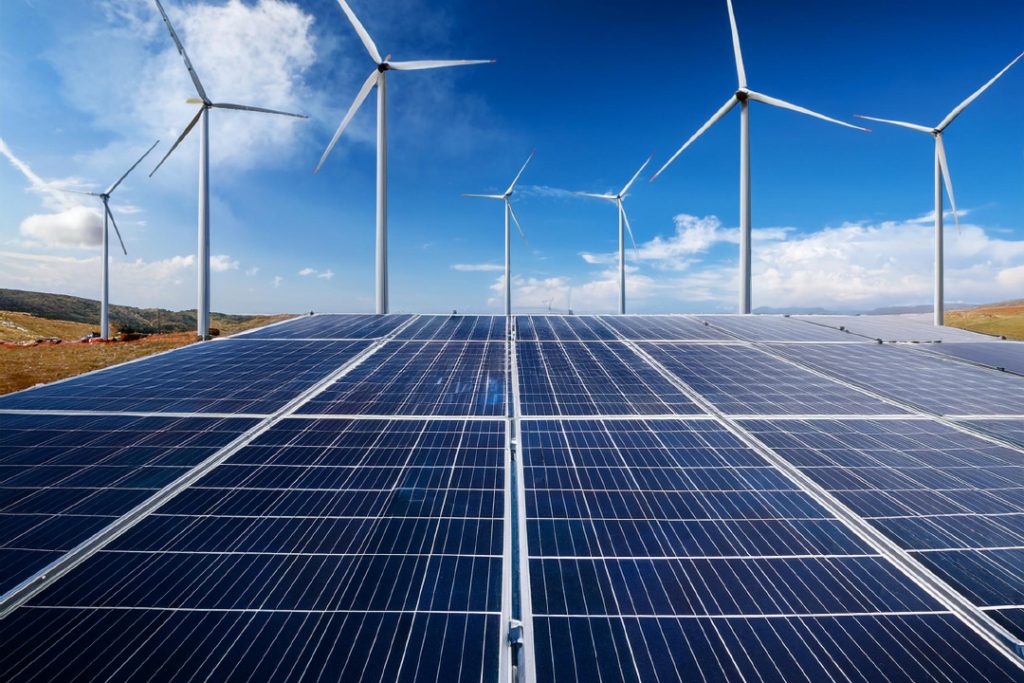
Ditching fossil fuels for cleaner energy sources is non-negotiable. Here’s the lowdown on how different power sources stack up on emissions:
| Power Source | Carbon Emissions (g CO2/kWh) |
|---|---|
| Coal | 820 |
| Natural Gas | 490 |
| Solar | 41 |
| Wind | 11 |
| Hydro | 24 |
| Geothermal | 38 |
Switching to renewable energy helps:
- Cut our ties to dirty fossil fuels.
- Clean up the air and drop those emissions.
- Build sustainable energy solutions that last. Read more on renewable energy sources.
Building Tough Communities and Infrastructures
We need to toughen up our communities to stand strong against whatever global warming throws our way. It’s not about surviving but thriving through extreme weather and rising waters.
Top tactics:
- Use climate-smart design in city planning.
- Fortify roads, bridges, buildings—everything that keeps us going.
- Set up early warning systems for nasty weather.
- Manage water wisely to guarantee clean water supplies.
Communities that beef up their defenses are the ones who keep their people safe and sound. By getting with the program, we can dodge the worst of global warming and create a solid, green future.
Here some recommended links selected for you: The Best Books of the Month, Todays best Deals at Amazon, Best Sellers in Cell Phones & Accessories and last but not least the easy and great way to send a gift for the holidays: Amazon.com eGift Card (Instant Email or Text Delivery).

